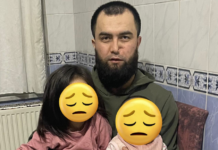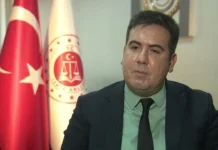The European Court of Human Rights (ECtHR) held a Grand Chamber hearing Wednesday on Yasak v. Türkiye, a closely watched appeal that challenges Turkey’s use of counterterrorism laws to convict individuals based on peaceful, past associations with a civic movement that Ankara has branded a terrorist organization.
Lawyers for Şaban Yasak, a Turkish national sentenced to over six years in prison for alleged membership in a terrorist group, urged the court to stop what they called Turkey’s weaponization of terrorism charges to punish nonviolent conduct and retroactively criminalized affiliation.
At the heart of the case is the Turkish government’s crackdown on the Gülen movement, a religiously inspired civic initiative inspired by the late Muslim cleric Fethullah Gülen. For decades, the movement operated a global network of schools and charities, including hundreds of educational institutions inside Turkey. It was publicly supported by successive Turkish governments until 2013.
Turkish President Recep Tayyip Erdoğan has been targeting followers of the Gülen movement since corruption investigations revealed in 2013 implicated then-prime minister Erdoğan as well as members of his family and inner circle.
Dismissing the investigations as a Gülenist coup and conspiracy against his government, Erdoğan designated the movement as a terrorist organization and began pursuing its followers. He intensified the crackdown on the movement following an abortive putsch in 2016, which he accused Gülen of masterminding. Gülen and the movement strongly deny involvement in the coup attempt or any terrorist activity.
Since the failed coup, at least 705,172 people have been investigated on terrorism or coup-related charges due to their alleged links to the movement. There are currently at least 13,251 people in prison as a result of pretrial detention or convictions related to terrorism in Gülen-linked trials.
Yasak’s lawyers argued that his conviction violated Article 7 of the European Convention on Human Rights, which prohibits punishment without law, as it was based on acts that were lawful and uncontroversial at the time. These included tutoring students, staying in movement-affiliated student houses, working at a legal company later shut down by decree and depositing money at Bank Asya, which was fully licensed by the Turkish state at the time.
The defense warned that the ruling of the ECtHR’s lower chamber risked validating Turkey’s crackdown, in which more than 150,000 people — including teachers, civil servants, lawyers and even minors — have been convicted under similar logic, without evidence of violence or intent to commit a crime.
“In 2023, we stood in this court in the Yalçınkaya case, and we left with hope. Hope that the powerful judgement that your court rendered would restore the rule of law in Turkey and protect the rights of those persecuted without cause,” said Yasak’s lawyer, Johan Heymans, referring to the court’s 2023 judgment that condemned Turkey’s use of indirect indicators like bank activity and encrypted messaging apps to convict another teacher. “But we were wrong. Turkey did not comply with your court judgment. On the contrary, the Second Chamber’s judgment in this Yasak case is now used by the Turkish courts to justify the same violations your court already condemned in the Yalçınkaya case.”
The Turkish government defended Yasak’s conviction, arguing that he held a managerial role within what it claimed was a covert, hierarchical structure and insisted that Turkish case law provided a clear basis for the judgment.
Yasak’s legal team rejected this narrative, saying neither the public nor Yasak himself had any reason to believe the movement had criminal aims.
The defense also criticized Turkish courts for failing to examine Yasak’s intent and instead presuming guilt based on organizational role or past association — a practice condemned by the ECtHR in the Yalçınkaya case.
Third-party submissions were filed by the United Nations special rapporteur on Human Rights and Counter-Terrorism, the European Criminal Bar Association and the Italian Federation for Human Rights. All raised alarm over the erosion of individual criminal responsibility in Turkey and the expansion of counterterrorism laws to punish association.
A final ruling by the Grand Chamber will be issued at a later date.















